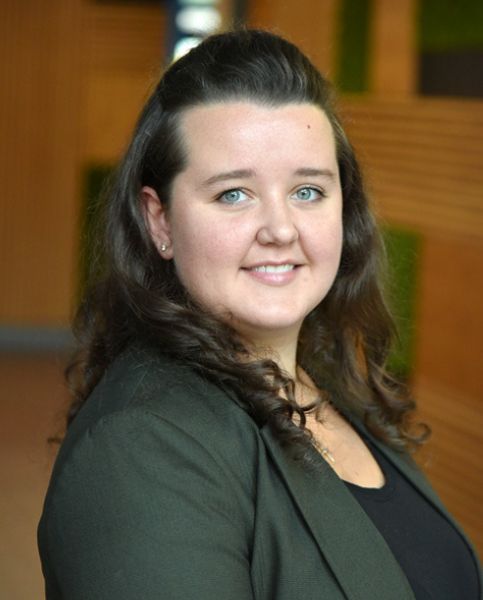Do I Need a Financial Order If I Am Going T...
Family Mediation Lawyers.
Divorce or separation can be a stressful, emotionally challenging time. Communicating with your former partner is often one of the most difficult aspects of the process, which can make coming to an agreement over issues surrounding your children or financial matters, even harder.
Mediation, like Collaborative Law, is a form of alternative dispute resolution (ADR). In the Mediation process an independent third party provides information, usually through a series of meetings with you and your former partner/spouse, to support and structure your negotiations. Mediation works in tandem and alongside each party separately receiving ongoing legal advice and support from their respective solicitors. The aim of all ADR processes is to enable you and your former partner/spouse to come to an amicable agreement away from the courts.
By providing impartial information and support, a trained neutral mediator will assist you and your former partner/spouse to work through the challenges you are facing. Using mediation can help each party to see things from a different perspective and can allow seemingly intractable deadlocks to be broken. Where necessary, it is even possible to conduct sessions without coming face to face with your former partner/spouse. As Mediators must remain neutral in the process they are barred from giving legal advice to the parties. Lawyers are not present in the mediation sessions. Hence the need for each party to have ongoing legal advice from their respective solicitors who receive updates in the form of Mediation Summaries, of the stage reached in Mediation and things still to be progressed.
In addition to reducing the stress involved in negotiating with your former partner or spouse, coming to an agreement outside the court system has a number of advantages, not least the cost of the process. Mediation, like Collaborative Law, gives you more control over when and where meetings will take place, as well as greater flexibility in terms of what is addressed. While a judge will need to assess all elements of the case, a mediator or Collaborative lawyer will use their experience and training to help smooth the negotiations regarding any element of your separation you are struggling with, whether that is related to financial matters, the division of assets or arrangements for your children.
In most cases, in order to proceed to court, you will need first to demonstrate that you have attempted to reach an agreement yourselves by attending a Mediation Information Assessment Meeting (MIAM). This is a legal requirement in proceedings relating to either children or financial matters.
Our expert team has supported many people achieve positive, amicable solutions through referring our clients to mediation, supporting them with legal advice as they go through the Mediation process and subsequently drawing up court orders to reflect the terms agreed within Mediation. Contact us today to discuss how we can support you.
What is mediation?
Mediation is a form of alternative dispute resolution (ADR) which, in a family law context, gives former partners/spouses a chance to resolve disagreements which have arisen on the breakdown of their relationship. We are also experts in Collaborative Law, another form of ADR, and understand the value of achieving results away from court, particularly in circumstances where an ongoing relationship needs to be maintained.
A qualified and experienced family Mediator or Collaborative Lawyer will facilitate negotiations, giving you the opportunity to express your wishes and concerns to your former partner in a less confrontational environment. Their job is to create a safe space, and to reduce any hostility and stress which arises, allowing you to resolve differences in a positive, amicable way.
Our Family Mediation Expertise
As one of the leading family law teams in England and Wales, we understand that our advice needs to take account of the emotional impact of separation, as well as addressing the technical legal issues. We know that settling your differences with your former partner/spouse out of court has huge benefits, so will explore all your available options with you. Opting for an ADR method such as Mediation or Collaborative Law is often the most effective way to achieve both your short and long-term goals by avoiding the sometimes painful fallout of court proceedings.
In circumstances where you need to maintain an ongoing relationship with your former partner/spouse (if you have children together, for example), this is vital.
Our reputation for client service is important to us, so we are proud to be Rated in Band 2 in the 2025 edition of Chambers UK and referenced in the 2025 edition of the Legal 500. Our combination of technical legal expertise and emotional intelligence ensures that we will find the right solution, no matter what your circumstances.
Understanding our clients allows us to provide the best, most precise advice possible. Our commitment to building this understanding is highlighted by our signature of the Armed Forces Covenant and our appointment to the NFU legal panel – both these steps ensure that we are best placed to support clients in those sectors, as well as showcasing our dedication to customer service.
Our years of experience leading clients through the process of separating from their former partners or spouses has given us an insight into the most effective ways to manage that process which is hard to match. Contact us to discuss how mediation can help you to find a cost-effective and efficient route through your separation or divorce proceedings.
Your Family Mediation Questions Answered
As mediation is a voluntary and relatively informal process, there are few rules regarding who can attend.
Family Mediation can be an effective method of resolving disagreements for a wide range of people, for example:
- Couples going through separation – to resolve differences before they lead to more serious disagreements
- Separated couples with outstanding differences – to resolve long-standing, seemingly intractable issues
- Divorced couples – to resolve issues which fall outside the Final Order of Divorce (previously called a “Decree Absolute”)
- Married or unmarried parents – to resolve specific child arrangement issues
Other extended family members – to resolve wider family disagreements, such as ongoing grandparent contact
Mediation can be used at any stage, including after a relationship has ended. It can be an effective method of resolving disputes at any point, as it provides a more constructive, less hostile environment than the courts. Your mediator will seek to ensure that the focus of the process remains on reaching a mutually satisfactory agreement, rather than one party “winning”, and will support both sides to come together in an impartial way. This means that longstanding issues which have become difficult or impossible to discuss can be resolved.
The most common time to use mediation is during separation, at a point when negotiations are ongoing, but becoming difficult. It is better to get support with these discussions early, to avoid rising tension and either party becoming entrenched in their position. The success of the mediation process is now so widely recognised that the court may in fact refuse to hear your case or otherwise consider it as a factor when deciding on costs orders if you cannot show that you have at least attempted to resolve your issues through mediation first.
One of the benefits of mediation is that you are in control of the remit of the mediator. The informal nature of the process gives you flexibility when it comes to deciding what can be discussed, and, because it is voluntary, you can set limits on the issues which can be raised.
This means that the discussions which you have through your mediation process can be as focused or wide-ranging as you need. Often couples will use mediation to resolve the discrete elements of their separation which are causing issues, saving time and money by keeping the focus of dispute narrow.
The type of issues which can be resolved using mediation include:
- Childcare arrangements (living arrangements and the time that children will spend with parents and wider family members)
- Which school a child should attend
- Spousal maintenance
- Division of assets
- Arrangements for the sale of property
- Allocation of debts
Ongoing management of a family business
The principal benefit of mediation is the less formal, less confrontational environment it creates for you to resolve your differences. By maintaining focus on achieving a mutually agreeable solution, mediation can remove the sense of a party winning or losing, which can create resentment. The court process can be confrontational and sometimes hostile, with consequences for your ongoing relationship with your former partner/spouse. In addition the outcome imposed by a judge could be different to what either of the parties wanted! Often, although the relationship has ended, ongoing contact with your former partner/spouse is necessary, particularly if you have children together. Using mediation or the collaborative law process can help to ensure that discussions remain positive and collaborative.
Benefits to using mediation include:
- Emotionally easier – The less formal and hostile nature of mediation proceedings also means that it is less stressful than going to court and less likely to be upsetting, particularly for children.
- Cost-effective – The process is almost always significantly quicker and more cost-effective than court proceedings. You will need to pay fees to the mediator, as well as ongoing fees to your solicitor for their tandem legal advice, preparation and submission of the final agreement for judge approval. However these will be significantly less than the costs of going to court.
- Flexibility – the scheduling and scope of matters addressed is down to you and your former partner/spouse.
Control – you are in control of the process and can choose the mediator you want to work with, the time and location of the meetings, and the nature of the things you want to negotiate. This allows you to specifically target certain elements of your separation which are causing difficulties, further increasing the efficiency of the process.
A mediator will work with both parties to identify the source of any difficulties you are having in coming to an agreement and will then support you to resolve them. They will remain impartial and seek to find common ground between you and your former partner. The focus of the mediator will be to give information and guidance on the general process to enable you to reach a compromise, in tandem with your respective solicitors, which is agreeable to both parties.
Part of the role of the mediator is to ensure that you think carefully about your proposals and how practical they are. Any agreement needs to be sustainable, and your mediator will be trained to ensure that both the immediate and long-term consequences of the decisions you make are considered.
As stated above, it is not the job of a mediator to provide legal advice, so it is important that you have legal representation through the process, to ensure that your rights are fully protected. We have a huge amount of experience supporting people through the mediation process and helping them to secure the arrangements they want for their future.
Some mediators will also work directly with children to consider their position and ensure that their wishes and interests are taken into account.
The first step is to meet with a mediator for a Mediation Information Assessment Meeting (MIAM). At this meeting, the mediator will explain the details of the process, answer any questions you have, and go through your other options. Following this meeting, you can decide whether mediation is the right option in your circumstances. You are required to have a MIAM before you make an application to court.
The next stage is the mediation meetings themselves. You will attend these meetings with your former partner and the mediator. At these meetings, you will explore the issues you are facing and seek to resolve your differences. You are in control of how these meetings are run and what is discussed.
Once you have reached a mutually agreeable conclusion, the mediator will draw up a summary of the proposals you and your former partner have agreed to. Again, the format of this summary is within your control. Where decisions have been reached relating to children, a child only memorandum of understanding can be produced.
The agreements which you come to during mediation are not legally binding, but you can choose to turn them into a separation agreement or a consent order, which can be approved by a court. We can deal with the legal processes required to formalise your arrangements, if that is what you choose to do. We usually do recommend that matters agreed in mediation are converted into binding court orders, for finality and enforceability.
In circumstances where it would be too difficult to discuss your issues face-to-face, it is possible to hold what is called Shuttle Mediation, where the mediator acts as a link between you and your former partner/spouse, who can remain in separate rooms. The mediator will work with each attendee to understand their concerns, and then “shuttle” to the other room to explore whether a compromise can be reached between you.
If you would prefer a more formal, and legally binding, process, but still hope to avoid going to court, arbitration provides an alternative to mediation. In arbitration proceedings, you retain the control and flexibility of mediation, but a trained arbitrator will preside and will adjudicate. Unlike mediation, the third party makes a decision about the most appropriate way to resolve your differences, and that decision is legally binding.
Collaborative Law is another ADR method which is similar to Mediation in many aspects but sees your Collaborative lawyer participate in each meeting alongside you. That enables support and legal advice to be given during each meeting in a more fluid, transparent and immediate fashion than in the Mediation model.
More information on Family Arbitration and Collaborative Law is available. Contact our expert collaborative family law team today to discuss your options.
What our clients say.
Contact Lanyon Bowdler
Lanyon Bowdler is a team of solicitors specialising in family law. We can help you through family mediation to reach the best possible outcome for all involved, while reducing anomisity. Our solicitors in Shrewsbury, Bromyard, Conwy, Hereford, Ludlow, Oswestry and Telford support families in Shropshire, Herefordshire, Mid and North Wales and across the Midlands.
Our aim is to provide expert legal advice that is tailored to your situation, however simple or complex. We have many of years of experience mediating delicate family law cases, consistently achieving great results for our clients while providing excellent service before and after the case has concluded.
As a full-service law firm, we help clients across England and Wales. Contact Lanyon Bowdler today to find out how we can help you.
Meet the team.
Latest knowledge.
Our awards and accolades.
Get in touch.
"*" indicates required fields

 Back
Back



















 Blog
Blog





 Podcast
Podcast








